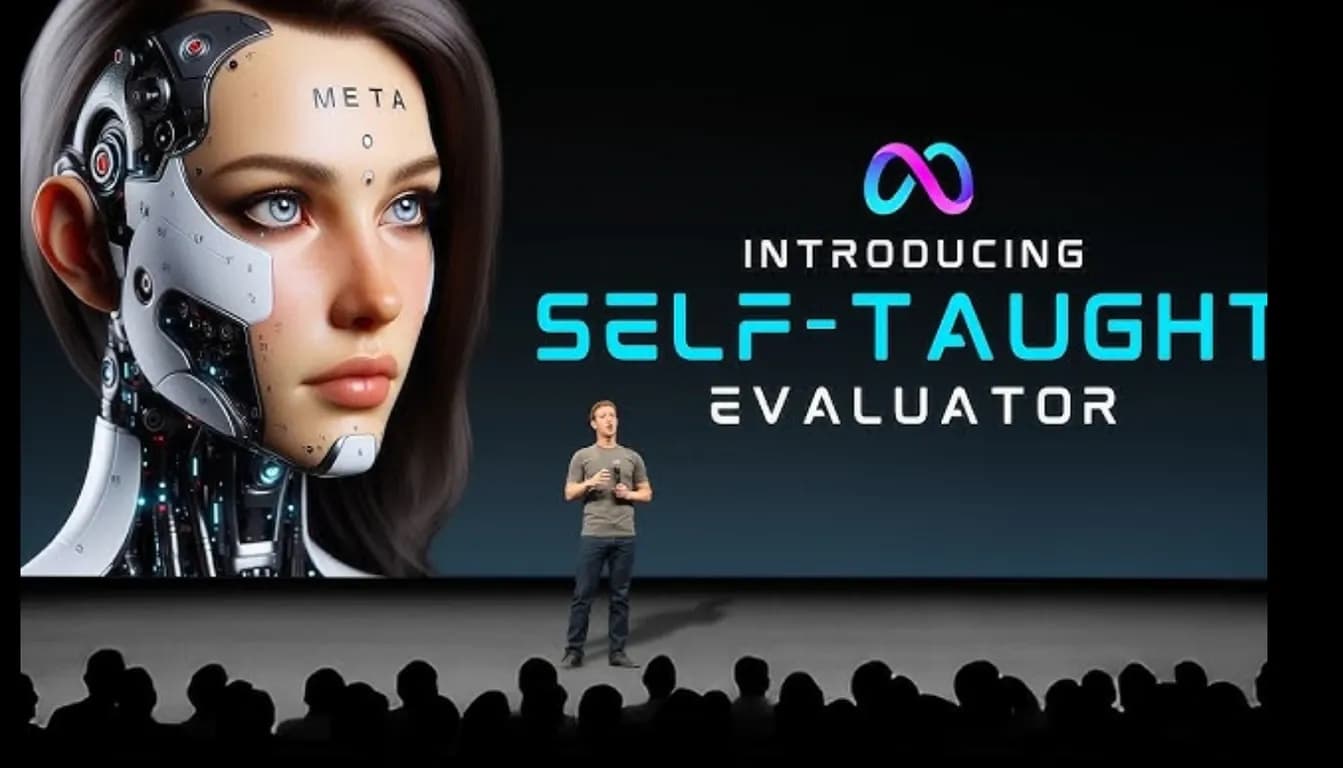Ad

Meta Unveils Self-Taught Evaluator: A New Era for AI Model Assessment
Follow Us:
21,345 views
Meta has introduced a groundbreaking AI model known as the "Self-Taught Evaluator," aimed at evaluating the responses of other AI systems. This release marks a significant step toward minimizing human involvement in the AI development process.
Key Features of the Self-Taught Evaluator
- Chain of Thought Technique:
The Self-Taught Evaluator employs the "chain of thought" technique, similar to that used in OpenAI’s o1 models. This method breaks down complex problems into smaller, logical steps, improving the accuracy of responses in challenging subjects such as science, coding, and mathematics.
- AI-Generated Training Data:
Notably, Meta trained the evaluator model using entirely AI-generated data, eliminating human input during this stage. This innovative approach offers a potential pathway for creating autonomous AI agents capable of learning from their own mistakes, as explained by the researchers behind the project.
- Implications for Autonomous AI:
The development of reliable AI evaluation tools could pave the way for digital assistants that operate independently, taking on a wide range of tasks without human intervention. Jason Weston, one of the project's researchers, emphasized the importance of self-evaluation in achieving a "super-human" level of AI intelligence.
- Reducing Human Dependency:
The Self-Taught Evaluator has the potential to reduce reliance on the current costly and often inefficient process known as Reinforcement Learning from Human Feedback (RLHF). This traditional method requires specialized human annotators to accurately label data and verify complex answers, making it time-consuming and expensive.
- Competitive Landscape:
While other companies, including Google and Anthropic, are exploring similar concepts like Reinforcement Learning from AI Feedback (RLAIF), they typically do not make their models publicly available, unlike Meta's approach.
- Additional AI Tools Released:
Alongside the Self-Taught Evaluator, Meta also released an updated version of its image-identification model, Segment Anything, and introduced tools to accelerate large language model (LLM) response generation. Additionally, new datasets have been made available to aid in the discovery of new inorganic materials.
Conclusion
Meta's introduction of the Self-Taught Evaluator marks a significant advancement in the field of AI. By enabling models to assess their performance, Meta is not only reducing the need for human input but also pushing towards the development of more autonomous AI agents capable of operating with greater efficiency and accuracy. As the AI landscape evolves, this innovative approach could redefine how AI systems learn and improve over time.
Latest News





Reviews & Guides
View All

Sony BRAVIA 7 Mini LED K-65XR70 vs. Haier Mini LED H65M95EUX

Samsung QN90F (65QN90FAU) Review: The King of Bright-Room Viewing

LG QNED92: The QNED Powerhouse That's More Than a Bright Alternative

Haier M92: A New Contender in the QD-Mini LED Arena

Why doesn’t Apple reveal the iPhone battery in advertisements?

Top 10 camera lenses you should Own in 2025

Donald Trump Watch Collection: Timeless Luxury on the Wrist

Best Smartphones Under 30,000 in 2025







